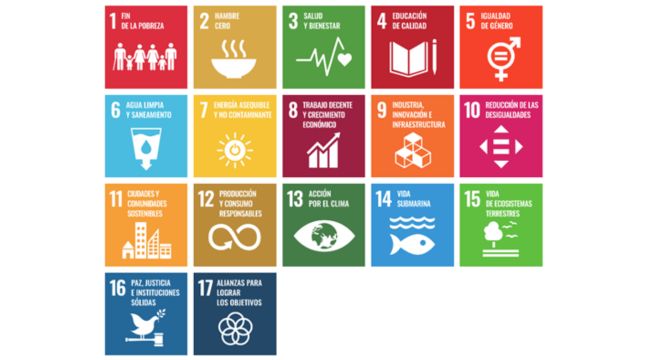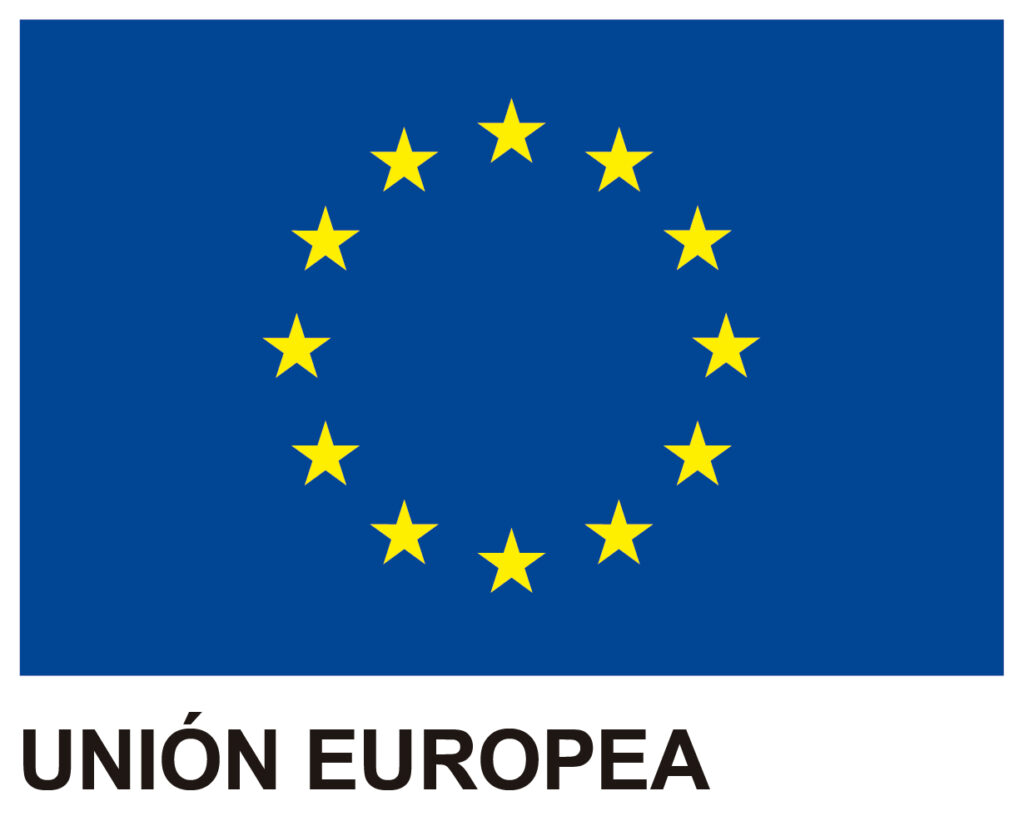The 17 Sustainable Development Goals
The Sustainable Development Goals were first introduced on September 25, 2015, by the United Nations General Assembly when unanimously approving the 2030 Agenda for Sustainable Development. This Agenda was developed as an action plan in favor of people, the environment, society, and universal peace, and it establishes, with a 2030 horizon, the 17 Sustainable Development Goals (SDGs), as well as a wide variety of targets that help to specify these strategic objectives.
The SDGs are a call to action directed at all countries to promote progress, with the aim of achieving a sustainable economy and society, and although they are directly aimed at governments, the private sector can and must play a fundamental role in their achievement.
Below are the 17 Sustainable Development Goals introduced by the 2030 Agenda:

Source: United Nations
As can be observed, these objectives encompass environmental, social, and governance issues, thus becoming an international roadmap and reference in relation to ESG criteria for the entire private sector.
| Derechos Humanos | Principio 1 | Las empresas deben apoyar y respetar la protección de los derechos humanos fundamentales, reconocidos internacionalmente, dentro de su ámbito de influencia. |
| Principio 2 | Las empresas deben asegurarse de que sus empresas no son cómplices en la vulneración de los Derechos Humanos. | |
| Normas laborales | Principio 3 | Las empresas deben apoyar la libertad de afiliación y el reconocimiento efectivo del derecho a la negociación colectiva. |
| Principio 4 | Las empresas deben apoyar la eliminación de toda forma de trabajo forzoso o realizado bajo coacción. | |
| Principio 5 | Las empresas deben apoyar la erradicación del trabajo infantil. | |
| Principio 6 | Las empresas deben apoyar la abolición de las prácticas de discriminación en el empleo y la ocupación. | |
| Medioambiente | Principio 7 | Las empresas deberán mantener un enfoque preventivo que favorezca el medioambiente. |
| Principio 8 | Las empresas deben fomentar las iniciativas que promuevan una mayor responsabilidad ambiental. | |
| Principio 9 | Las empresas deben favorecer el desarrollo y la difusión de las tecnologías respetuosas con el medioambiente. | |
| Anticorrupción | Principio 10 | Las empresas deben trabajar contra la corrupción en todas sus formas, incluidas extorsión y soborno. |
The Ten Principles of the Global Compact
The SDGs are in turn interconnected with the Ten Principles of the United Nations Global Compact. These principles cover the fundamental responsibilities of companies in terms of human rights, labor standards, environment, and anti-corruption that should be assumed as paramount in their value systems. It could be said that the Ten Principles of the Global Compact provide the basic guidelines to avoid negative impacts, while the SDGs, on their part, promote the production of positive impacts on society or the environment in companies.
According to the Global Compact, “the Ten Principles are the how and the SDGs are the what”
Below are the Ten Principles of the Global Compact, derived from the Universal Declaration of Human Rights, the ILO Declaration on Fundamental Principles and Rights at Work, the Rio Declaration on Environment and Development, and the United Nations Convention against Corruption.
Why should My Company Strive to Achieve the SDGs?
Companies can benefit from developing action plans to promote the achievement of the SDGs, thus improving their own internal processes. Among these benefits, the following can be highlighted:
- Better reputation and social license: Companies that demonstrate a genuine commitment to the SDGs strengthen their reputation, which can translate into greater customer or investor loyalty.
- Efficient ESG risk management: By integrating the SDGs into their strategies, companies can identify and mitigate risks related to environmental, social, and governance (ESG) issues.
- Increased business opportunities: The SDGs represent a growing market, with an increasing demand for sustainable products and services. Companies that adapt to this trend can open up new business opportunities.
- Talent attraction and retention: younger generations increasingly value working in companies that share their values and contribute to a sustainable future.
- Regulatory compliance: In many countries, and especially in the European Union, the SDGs are influencing the development of new regulations and policies, so companies must be prepared to adapt to these changes. Developing actions aligned with the SDGs facilitates compliance with numerous environmental, social, and governance regulatory requirements, as well as signaling the company and providing a competitive advantage given the current and growing reporting obligations in the annual sustainability report.
How Can Software Help Integrate the SDGs into your Business Strategy?
GlobalSuite Solutions has extensive experience in sustainability-related projects, such as environmental projects (ISO 14001); crime prevention, anti-bribery, and compliance (based on ISO 19601, ISO 37001, and ISO 37301, respectively); projects related to the Non-Financial Information Law; projects in the field of Information Security and Data Protection, Business Continuity and Crisis Management, Risk Management, etc.
This experience has allowed us to design a global project for companies’ compliance in ESG matters, addressing in an integrated and efficient manner the performance and reporting of information from organizations based on these three pillars of business sustainability, as well as conducting a comprehensive analysis of ESG risks, thanks to all the functionalities and advantages offered by GlobalSuite®.
With the software, it is possible to automate processes in several crucial aspects:
- Conducting an initial assessment of the company’s current situation in relation to the SDGs, identifying areas of greatest impact and opportunity.
- Allowing the collection of information regarding the company’s current sustainability status in an agile, simple, and organized manner, as well as working in collaboration with suppliers, customers, employees, communities, and other stakeholders to achieve the objectives. In this way, it facilitates legal compliance with applicable reporting obligations (CSRD, ESRS, GRI), and other regulations (such as the Due Diligence Directive).
- Helping to define clear, specific, measurable, achievable, relevant, and time-bound objectives aligned with the SDGs.
- Facilitating the performance of risk analysis and definition of controls in ESG matters.
- Enabling the generation and monitoring of action plans, indicators, and sustainability metrics.
Schedule an individual call with our experts to learn how our solutions can adapt to the specific needs of your organization and ensure compliance in sustainability matters



